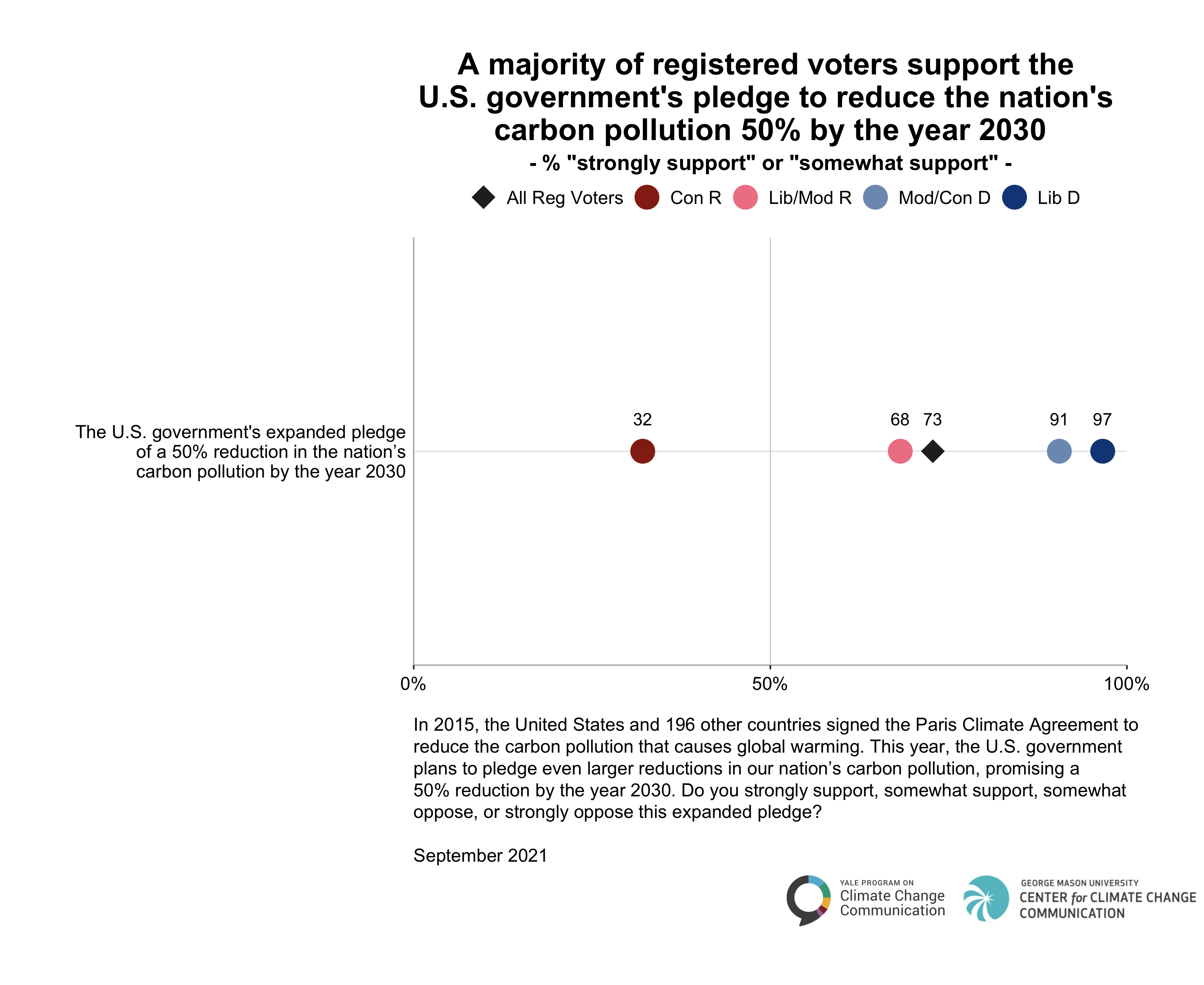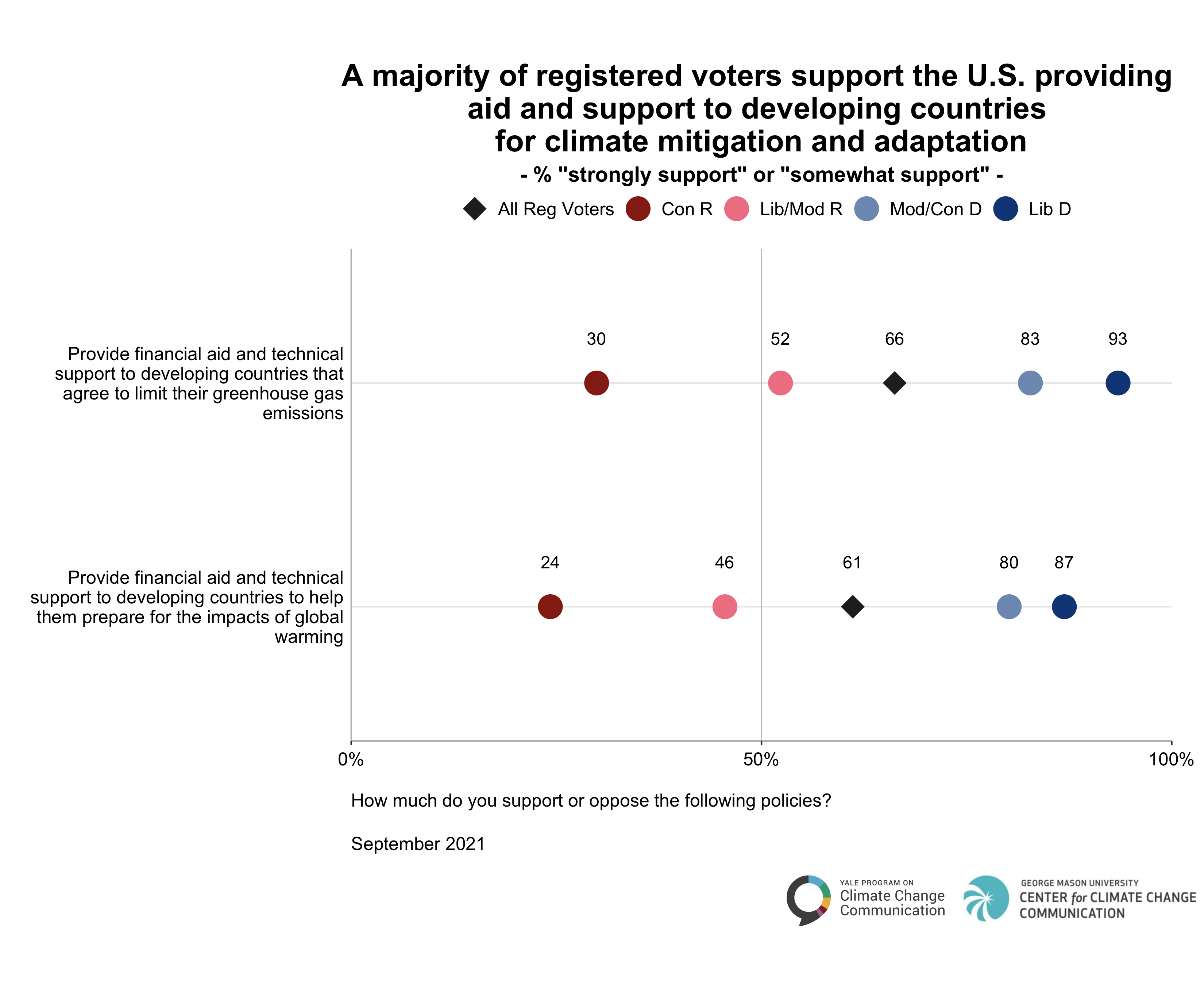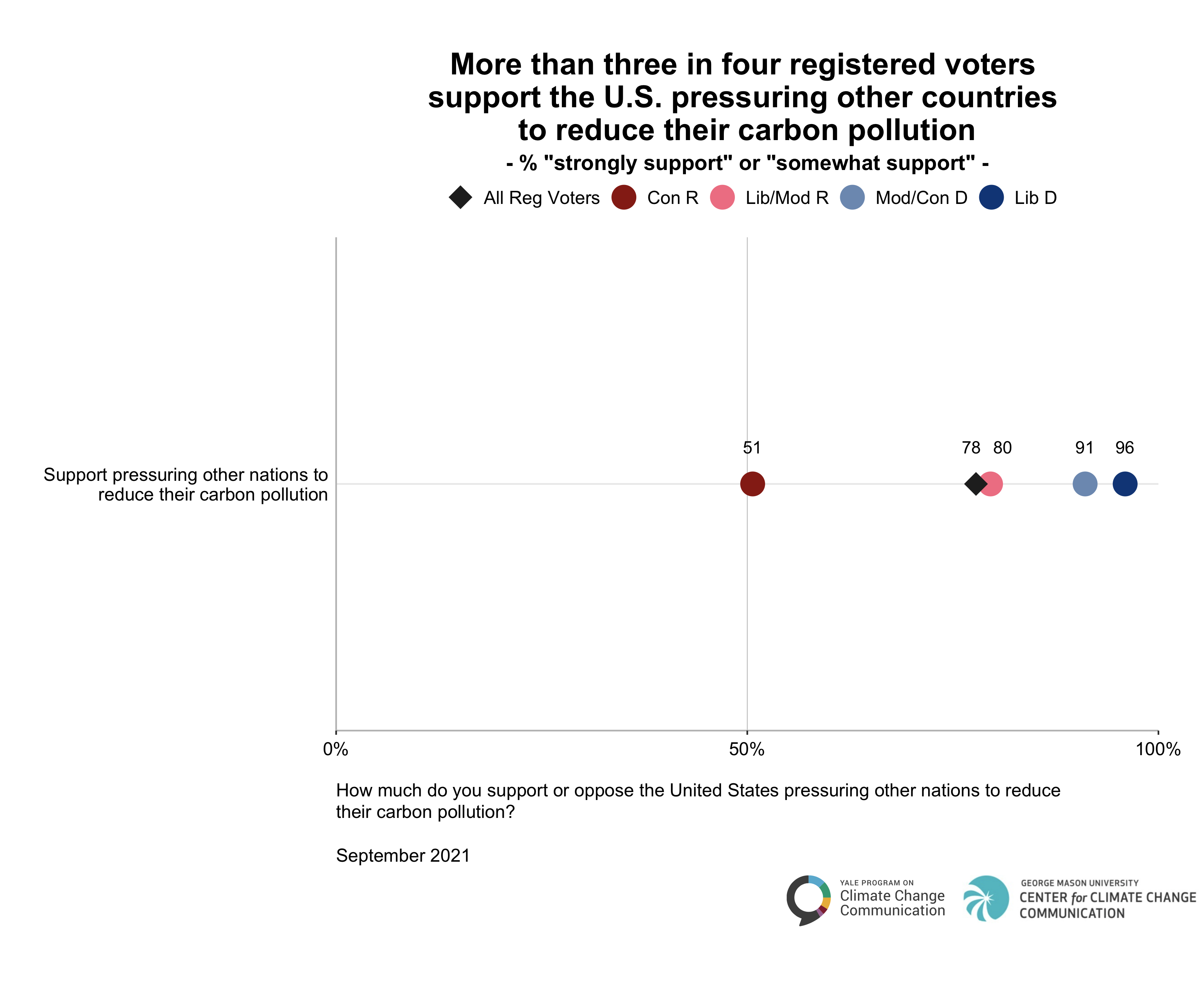Report · Oct 26, 2021
Public Support for International Climate Action, September 2021
By Anthony Leiserowitz, Edward Maibach, Seth Rosenthal, John Kotcher, Jennifer Carman, Liz Neyens, Matthew Goldberg, Karine Lacroix and Jennifer Marlon
Filed under: Policy & Politics
2. How Should the U.S. Interact with Other Countries to Act on Global Warming?
2.1. A majority of registered voters support the U.S. government’s pledge to reduce the nation’s carbon pollution by 50% by the year 2030.
In December, 2015, officials from 197 countries (nearly every country in the world) met in Paris at the United Nations Climate Change Conference and negotiated a global agreement to limit global warming. On Earth Day, April 2016, the United States and 174 other countries signed the agreement, with all of the other countries following suit. After President Trump withdrew the United States from the agreement, President Biden rejoined the agreement soon after his inauguration. Since that time, the U.S. government has pledged even larger reductions in our nation’s carbon pollution than were agreed upon in Paris, promising a 50% reduction by 2030.
Nearly three in four registered voters (73%) “strongly” or “somewhat” support the U.S. government’s pledge to reduce the nation’s carbon pollution by 50% by the year 2030, but support varies by party. Nearly all liberal Democrats (97%) and moderate/conservative Democrats (91%), and about two in three liberal/moderate Republicans (68%) support the pledge. By contrast, about one in three conservative Republicans (32%) support the pledge.
2.2. A majority of registered voters support the U.S. providing aid and support to developing countries for climate change mitigation and adaptation.
Majorities of registered voters support providing financial aid and technical support to developing countries to limit their greenhouse gas emissions (i.e., mitigation, 66%, +8 percentage points since our previous survey in March 2021) and to help them prepare for the impacts of global warming (i.e., adaptation, 61%, +7 percentage points).
Large majorities of liberal Democrats support providing aid for mitigation (93%) and adaptation (87%), as do most moderate/conservative Democrats (mitigation, 83%; adaptation, 80%). Providing financial aid and technical support to developing countries for mitigation is supported about half of liberal/moderate Republicans (52%) and aid and support for adaptation is supported by 46% of liberal/moderate Republicans. Fewer conservative Republicans support these policies (mitigation, 30%; adaptation, 24%).
2.3. More than three in four registered voters support the U.S. pressuring other countries to reduce their carbon pollution.
More than three in four registered voters (78%) support the United States pressuring other countries to reduce their carbon pollution. This includes nearly all liberal Democrats (96%) and moderate/conservative Democrats (91%), a large majority of liberal/moderate Republicans (80%; +12 percentage points since our previous survey in March 2021), and about half of conservative Republicans (51%).


